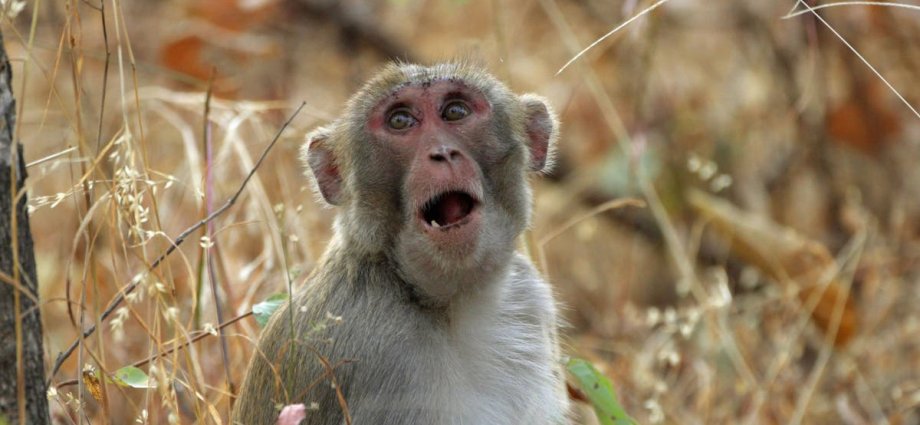Monkeys who are facially expressive are more likely to have a more tolerant leadership style, research suggests.
Analysing the lives of 66 rhesus macaques, scientists found social connections were stronger and more evenly distributed in groups where the dominant male was more expressive.
This suggests having a diverse range of expressions – which include lip smacking, nose wrinkling, jaw dropping, brow raising and ear flattening – can help monkey leaders communicate better by making clear what their intent is and reducing uncertainty, the researchers said.
The findings published in the Royal Society journal, Proceedings B, add also add to evidence that facial expressions, also a key feature in human communication, have evolutionary roots, they added.
Bridget Waller, professor of evolution and social behaviour at Nottingham Trent University (NTU) and research project lead, said: “Humans have evolved incredibly expressive faces with highly complex facial musculature, and these findings help us understand what advantage this has provided over evolutionary time.”
Monkeys are social animals and use their face to communicate information related to identity, family relations, dominance, intent, affiliation, and the desire to play.
Researchers analysed more than 130 hours of raw footage gathered from nine groups of monkeys housed at the Medical Research Council’s Centre for Macaques (CFM) in Salisbury.
Each group had one adult male and several adult females and their young offspring.
The researchers analysed facial muscle movements of each monkey, tracking 17 different types of expressions, which also included puckering, ear movements and mouth stretches.
They also measured how much time monkeys spent in company and how often they engaged in friendly grooming interactions.
Male monkeys with a wider range of facial expressions were found to be more socially connected within their groups and occupied more central positions within their networks, the researchers said.
Social connectivity was also more evenly distributed in groups where the dominant male was more expressive, they added.
According to the team, the findings suggest increased facial communication is associated with more tolerant leadership styles in male monkeys.
Dr Jamie Whitehouse, research fellow at NTU’s School of Social Sciences and lead author, said: “This research demonstrates how individual variation in expressivity can shape social dynamics for primates, including humans – suggesting that a broader range of expressions might be more effective for navigating complex social relationships than a limited repertoire.
“Facially expressive individuals may be better equipped to build and maintain strong social connections, potentially leading to the range of benefits associated with group cohesion, such as increased access to resources, mating opportunities, and protection from threats.”










